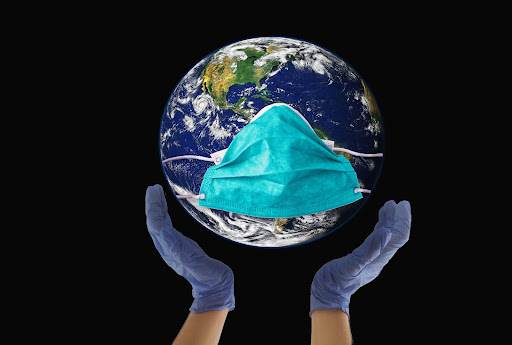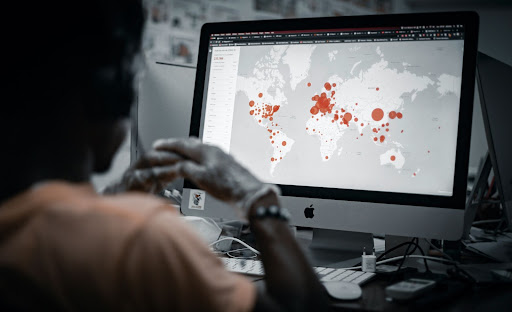
The head of the World Health Organization says an investigation is currently looking into alleged reports that the agency’s top official in the Western Pacific engaged in racist, unethical and abusive behavior. At a meeting of the executive board over the weekend, Tedros Adhanom Ghebreyesus said the World Health Organization was first made aware of staff complaints about the reported misconduct of Dr. Takeshi Kasai in late 2021. “We take these allegations seriously and we have acted with urgency,” said Tedros. He said the World Health Organization headquarters was told of the claims in late 2021 and began “following due process with the cooperation of the staff member,” without specifying Kasai. The internal complaint and the email describe a “toxic atmosphere” with “a culture of systemic bullying and public ridiculing” at the World Health Organization’s headquarters in Manila, led by Kasai, director of a vast region that includes China and his home country of Japan.
What Are the Allegations against Kasai?
During Saturday’s closing session, several countries pressured the organization to investigate allegations of misconduct. World Health Organization staffers complained that Kasai’s abusive, racist and unprofessional behavior compromised the agency’s response to the COVID-19 pandemic. The complaint also accused Kasai of improperly sharing potentially sensitive vaccine information with Japan. The claims were first documented in an internal complaint filed in October of 2021. They were reiterated in an email, sent recently by unidentified “concerned World Health Organization staff” to senior leadership and the executive board. In their complaint, WHO staff criticized Kasai for “not daring to criticize the Chinese authorities” and failing to disclose what happened during a trip to Beijing to meet President Xi Jinping shortly after the coronavirus was identified in Wuhan. In addition to those shady actions, More than 30 staffers wrote a complaint saying Kasai has made numerous racist comments to people from countries including China, the Philippines and Malaysia. They said the harassed staffers were sometimes driven to tears.
Staffers, who did not identify themselves to WHO “for fear of retaliation,” said in the email that Kasai’s actions led to the departure of more than 55 key staff in the past year, most of whom have not been replaced. This resulted in a lack of understanding and involvement with countries that “significantly contributed” to a surge of cases in many countries in the region, they said. World Health Organization staffers who worked for Kasai claimed in the report that he frequently used racist language. This evidence is backed up by parts of recorded meetings where Kasai is heard making derogatory remarks about his staff based on nationality. The complaint alleges that Kasai once aggressively questioned a Filipino staffer during a coronavirus meeting, saying: “How many people in the Pacific have you killed so far and how many more do you want to kill further?” The complaint said he then asked “if she was incapable of delivering good presentations because she was Filipina.”

How has the United State Responded?
The U.S. said the reported racist and abusive behavior “undermines the core values and essential life saving work of the World Health Organization and its regional offices around the world.” Lawrence Gostin, of Georgetown University said, “Dr. Kasai came into office with a good reputation, as a reasonably strong public health leader with his country’s support, but I was not surprised to hear these allegations.” He went on to call Tedros “the moral conscience” of the pandemic. “But the only way you can have credibility in your moral standing is if you’re leading an organization which itself is behaving at the highest ethical standards and too often, that hasn’t been the case with WHO,” he said.
Gostin said racism in a WHO office at the center of the pandemic would be “unconscionable,” and that the allegations wounded the World Health Organization’s credibility and capacity to do what was needed during the pandemic. “If you ever needed WHO and its key regional offices to be acting with a single voice, with a single purpose and with great energy, it would be now,” he said. “And the fact that the staff are so demoralized, feel so defeated, so humiliated and morale is so low, it hurts the pandemic response in the region.”
What Does Kasai Say for Himself?
Kasai denied allegations of racism and unethical behavior. He said that after receiving the email last week, he immediately took steps to communicate with all his staff. “I ask a lot of myself, and our staff,” he said. “This has particularly been the case during the COVID-19 response. But it should not result in people feeling disrespected.” Kasai said he was committed to making changes that would ensure “a positive work environment” for all WHO staff in the region. However, an internal WHO message seen by the Alternative Press shows that in a meeting last week, Kasai ordered all his senior directors and country representatives to “reject” the accusations made in the email and to “totally support” him. It sounds like even in his attempt to gain some support he comes across very abrupt and almost menacing. Is this someone we want in charge of millions of peoples health?
Britain’s representative to the World Health Organization called on the agency to “promptly investigate” the claims and said “we regret to have heard of this first in the media,” saying the World Health Organization should have shared the information with its executive board as soon as it learned of the concerns. France’s diplomatic mission in Geneva last week said that if the reports prove to be true, the consequences could include Tedros consulting with the executive board to have Kasai’s contract terminated.
Written by: Erinn Malloy

